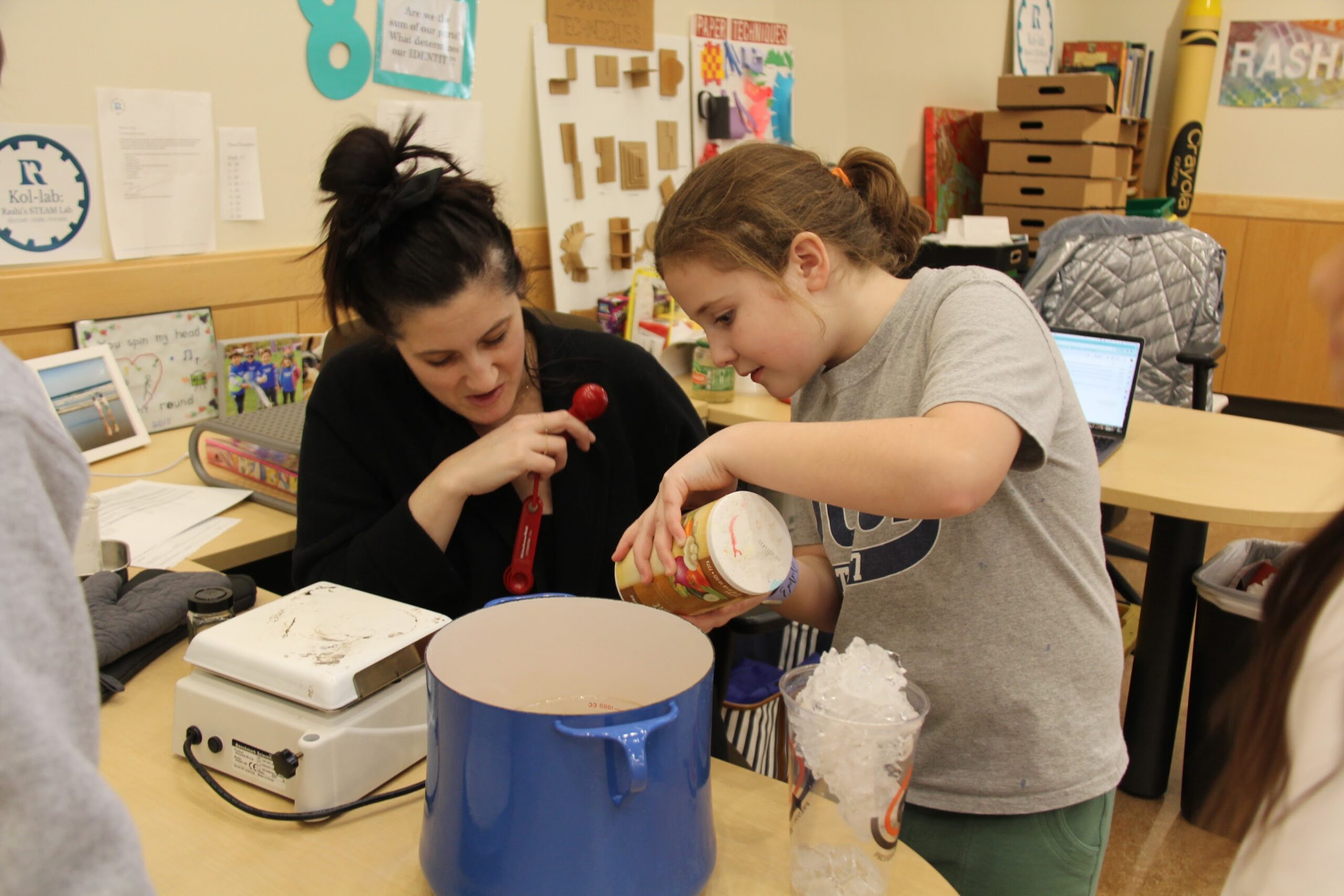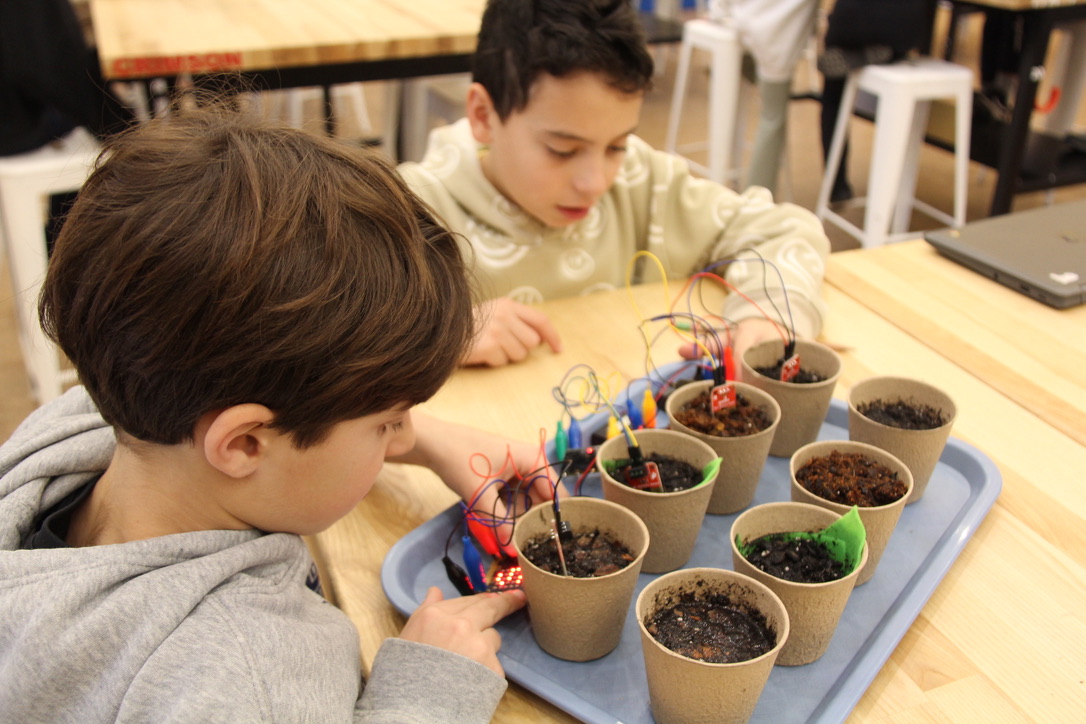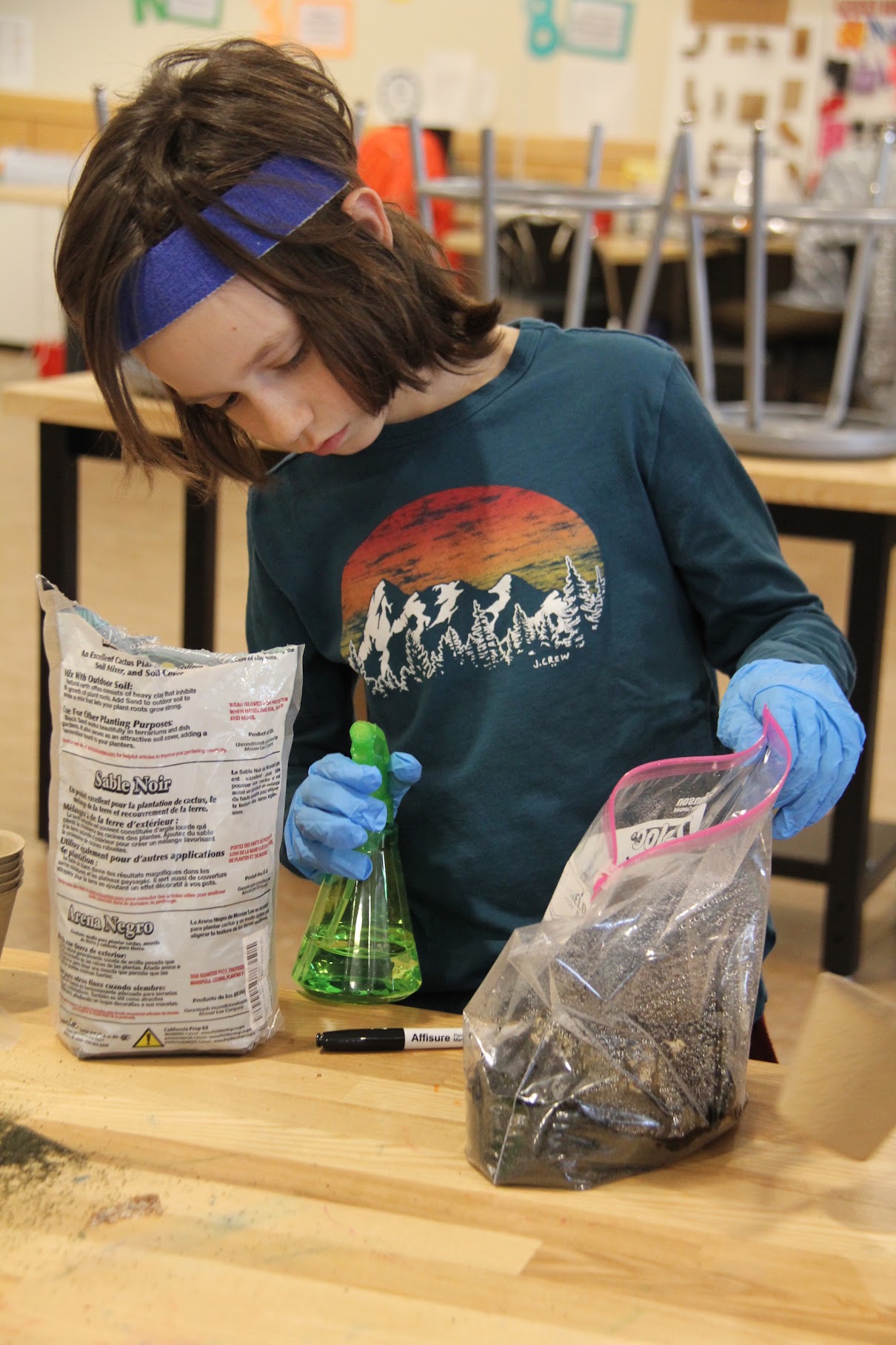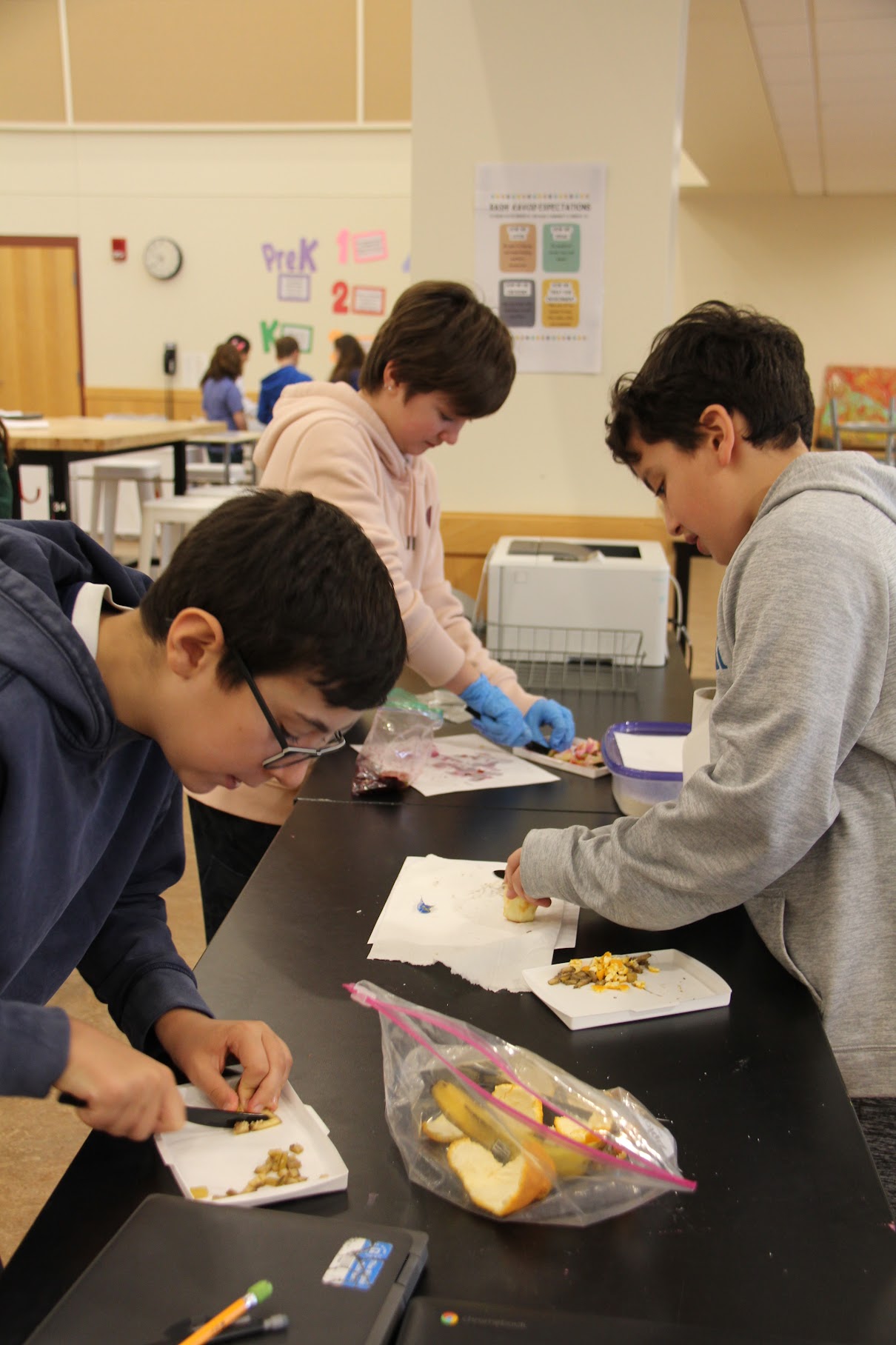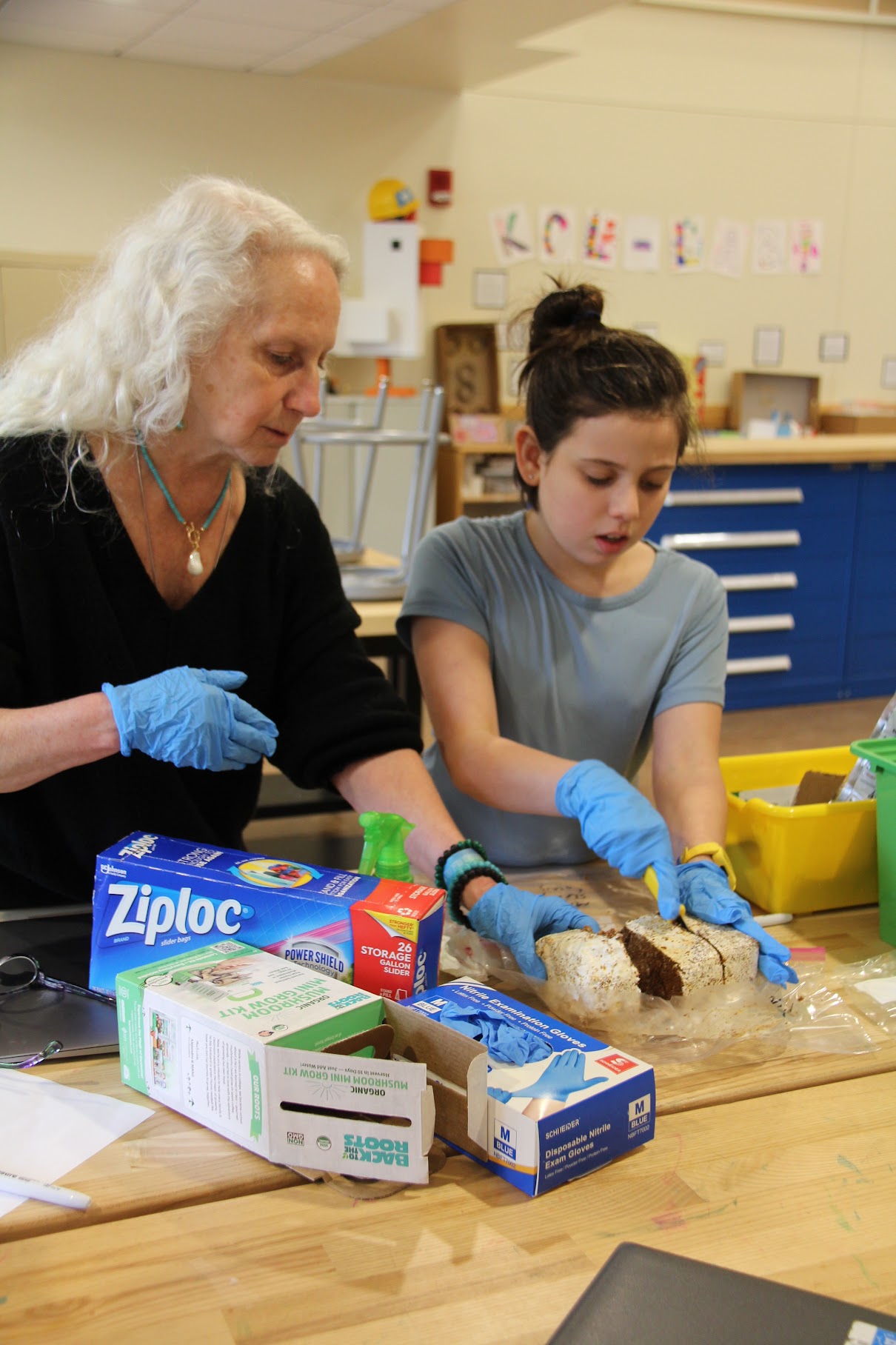 Grade 5 science is moving full STEAM ahead! The students are working hard on their STEAM fair projects, conducting experiments, doing research needed to support their hypotheses, and developing their presentations. Focusing on U.N. Sustainable Development Goal 2, Zero Hunger, the class has studied resilient agriculture, nutrition, CO2 sequestration, and the role mycelium has in soil health and product development.
Grade 5 science is moving full STEAM ahead! The students are working hard on their STEAM fair projects, conducting experiments, doing research needed to support their hypotheses, and developing their presentations. Focusing on U.N. Sustainable Development Goal 2, Zero Hunger, the class has studied resilient agriculture, nutrition, CO2 sequestration, and the role mycelium has in soil health and product development.
Mycelium, our students learned, is the connective root-like structure of fungi. It grows quickly and can be engineered into a unique variety of products, as explained by guest speaker Qing Qing Miao from Ecovative and My Forest Foods.
“We learned about how furniture could be built out of mycelium,” said Alison G. Ecovative is an engineering company that specializes in harvesting mycelium to be made into products ranging from plant-based foods, replacement leather for bags and shoes, and foam to pad furniture. Using mycelium, brands can have fast access to materials that would normally take weeks or even months to produce. It is ecologically friendly, taking up less space during the growth process, and leaves no waste behind due to its flexible sizing and decomposition abilities—a process one student group took a strong interest in.
“My group is testing the rate of decomposition of two different types of mycelium in compost,” said Danny R. “We predict the oyster mushrooms will decompose better because they’re meant to grow fast as well. We thought the decomposition process was interesting, and it could help people who want to learn about efficient composting for farms and gardens.”
The class has also learned about how mycelium helps sequester carbon in the atmosphere. One group ran their experiment by exposing both plain soil and mycelium to CO2 emissions from a car exhaust pipe, discovering that the latter absorbed higher amounts of carbon dioxide. The students are now using their findings to examine how inoculating the soil near industrial plants, for instance, with fungal spores might help minimize the effects of emissions.
For students who were interested in agricultural resilience, Grade 5 welcomed Dr. Morgan Ruelle of Clark University. Dr. Ruelle, who in 2011 was researching his dissertation in the mountains of Ethiopia, stumbled upon a community that was farming with maslins—plots that contain a mix of cereals and grains growing together. Maslins, which had been used for thousands of years before being largely forgotten in the U.S., adapt to their environment more quickly than a singular crop. If a year is particularly dry, the seeds that do best in dry weather will take over and thrive. If a year sees a lot of rain, the seeds that can survive wet climates will do the same. No matter what, the farmers will have their product.
This lesson led some students to ask how different species of plants and mushrooms would fare in harsh or changing climates.
“We’re measuring how well seeds germinate in salt water versus fresh water, and we even made our own desalinated water,” explained Emmie BT. “We want to see if there’s a way to help farmers who live near oceans and don’t have access to much fresh water. We’ve been documenting by measuring the growth and taking photos, and seeing which sprouts are more wrinkly. We hypothesized that more seeds would germinate in desalinated water.”
“We’re planting oyster and shiitake mushrooms with less water to see if they’ll grow the same as they would with typical amounts,” said Alison G. “We want to see if they can grow while taking up less time and resources.”
For the first time, Grade 5 students will give their final presentations at Olin College of Engineering, a perfect venue for eco-engineering discoveries. We’re thrilled about this exciting opportunity granted to our students, who have spent weeks applying cumulative knowledge to real world issues in an impressive array of projects. And who knows? Maybe one day we’ll see Rashi alumni-patented mycelium soil outside actual industrial plants.


